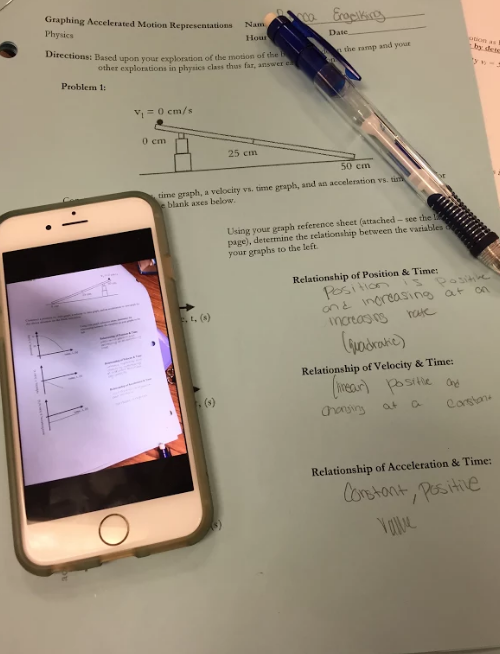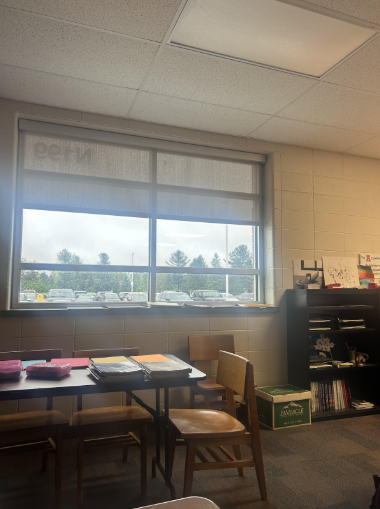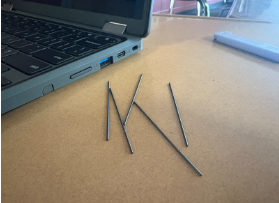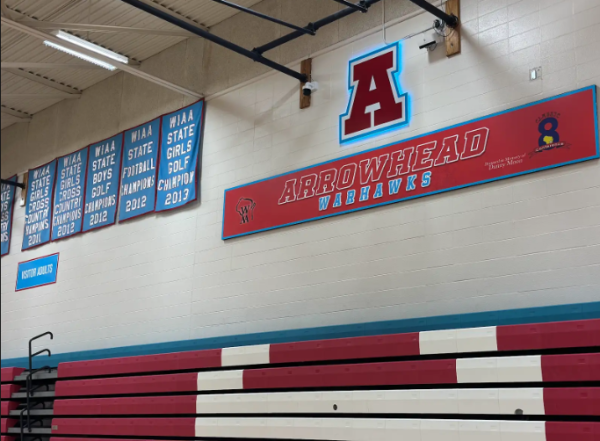Technology Helps Students Cheat in High School
With the increasing amount of technology in schools, cheating has recently become easier for students, creating a major problem in high schools such as Arrowhead. Additionally as students feel the pressure to succeed, cheating seems like an easy way to get a good grade.
ABCnews.com says the pressures to get good grades are extremely high for students.
Students can now easily take and send pictures of assignments with phones. They are also able to take pictures of tests and quizzes (for students who have yet to take it). This allows some students to look up the answers, giving them an unfair advantage. Additionally, with the internet at students’ fingertips, during tests and exams, answers are easily accessible online with Google.
Aside from smart phones and computers, Apple watches allows students to download documents and access the internet.
This technology also brings up the problem of plagiarism. The internet has endless essays and sources that can easily be copied and pasted with a new name. According to arrowheadschools.org, most teachers follow the policy for cheating as follows, First offense: Zero for that grade. Parent and administration informed. Second Offense: The cumulative grade for the six-week period will be lowered one full grade. Parent and administration informed. Refer to activity office for conduct unbecoming a student. Third Offense: Drop from course and fail semester. Parent and administration informed and a refer to activity office for conduct unbecoming a student.
According to ABCnews.com, the founder of turnitin.com, a website that allows teachers and educators to check and compare essays with a database of essays found online,“It’s typically 30 percent of all the papers submitted have significant levels of plagiarism.”
Additionally, in a poll taken by ABC news, in a random sample of high school students, 15-17, 36 percent said they had cheated themselves; however, seven out of 10 kids said they have friends who cheat.
Samantha Witter, a senior at Arrowhead says, “Today there’s so many more ways to cheat with technology and constantly having our phones with us. I think its a problem that needs to be talked more [about and] stopped. I’ve seen a lot of cheating from copying homework to looking up answers during quizzes. It’s way too easy to access the information needed.”
However, cheating doesn’t just stop at technology. According to Victor Dorff of the Huffington Post, students find no harm in cheating because students see role models and people in the media cheat with no consequences.
Dorff says, “From the investment bankers who made a fortune (and suffered no consequences for) selling worthless securities, to the South African swimmer who argued that his cheating was justified because it was prevalent in the sport (and got to keep his Olympic gold medals), the modern world is full of role models pointing in the wrong direction.”
Lauren Gardetto, a senior at Arrowhead who is in AP classes, has a job, and is also a Hawkette says, “I feel like students feel the desire to cheat due to the immense amount of stress and pressure put on us to succeed. Also, I know students don’t even have time to study because of the overwhelming workload, so again, this results in cheating. I think those that cheat think it’s the most effective way to receive a good grade.”






